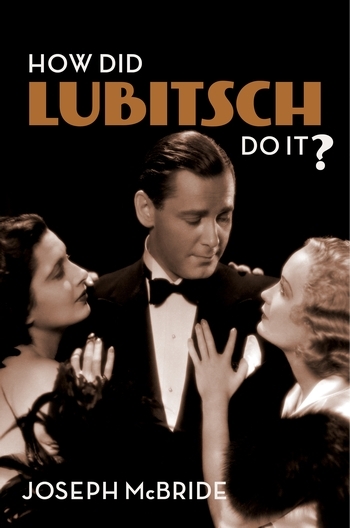Media Alert! Ross Melnick's American Showman
American Showman: Samuel “Roxy” Rothafel and the Birth of the Entertainment Industry, 1908-1935, Ross Melnick’s biography of one of the most colorful characters in the entertainment industry in the early 20th century, has been generating a good deal of buzz, with great reviews in a number of important newspapers. We’ve collected excerpts from some of these reviews here. And make sure you don’t miss our interview with Ross Melnick on “Roxy” Rothafel, the art of presenting silent films, and what goes into writing a biography.
From the Washington Post’s Book World:
Such wizards gave 100 percent of themselves, and some, like Roxy, died early by doing so. Second only in prestige to Florenz Ziegfeld, Roxy micromanaged every detail of the theaters he oversaw, from the creases in the ushers’ trousers, to the hiring of talent, to the frame-by-frame editing of the films exhibited. When he clashed with corporate spreadsheets, censors or others, he simply quit and went on to exert his magic in a bigger theater — or on a radio microphone for a massive international audience, who considered his voice a balm to their harried souls. The Great Depression (and perhaps personal arrogance) finally blindsided him, but, as long as the ’20s roared, his name meant a standard of quality and cultural uplift in the forum of mass entertainment.
In this 52nd volume of Columbia University Press’s outstanding Film and Culture series, Melnick has placed his subject in a huge context, chronicling not only Roxy but also the movie and music businesses, the rise of radio, issues of anti-Semitism, the development of New York and much more during the first third of the 20th century. His writing clarifies, his judgments are eminently reasonable and his research is spectacular.
From the New York Times’ Bookshelf:
Dr. Melnick skillfully captures the substance and durability of Rothafel’s prolific life. As he states unapologetically, though, his is a scholarly biography — the first, he writes, “to analyze the multidimensional work of a single American motion picture exhibitor in the silent and early sound film eras.”
From the Wall Street Journal:
“American Showman,” Ross Melnick’s exhaustive biography of Rothafel, tells what he did. Born in Germany in 1882 and raised in the American Midwest, Roxy fell into the entertainment industry by chance: He found himself in a town without a theater in a time when the local “opera house” was as essential as the newspaper and the high-school football game. So Roxy opened a theater, and another one, then a bigger one, till he was creating Taj Mahal-like cinemas, micromanaging everything from the carpeting in the lobby to the organ selections. Here’s another encomium, from Cole Porter’s “Anything Goes”: “You’re the pants on a Roxy usher.” He spoiled his customers with luxury.
And from Publisher’s Weekly:
The author provides wonderful details about how Roxy embellished silent films by surrounding them with live orchestras and dancers, signaling that merely being a projectionist was no longer sufficient–one had to curate, as Roxy did, an experience, complete with flowers, matrons, pages, and fountains. The book also provides valuable insight into Roxy’s dynamic contemporary moment–one characterized by world military strife, economic downturn, and a blossoming of technological innovation.





